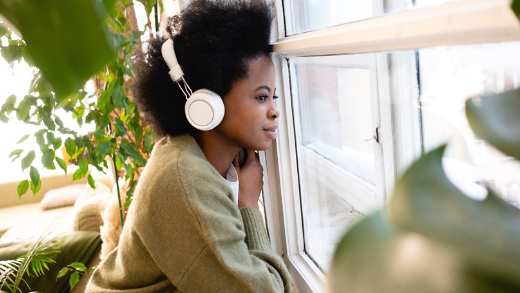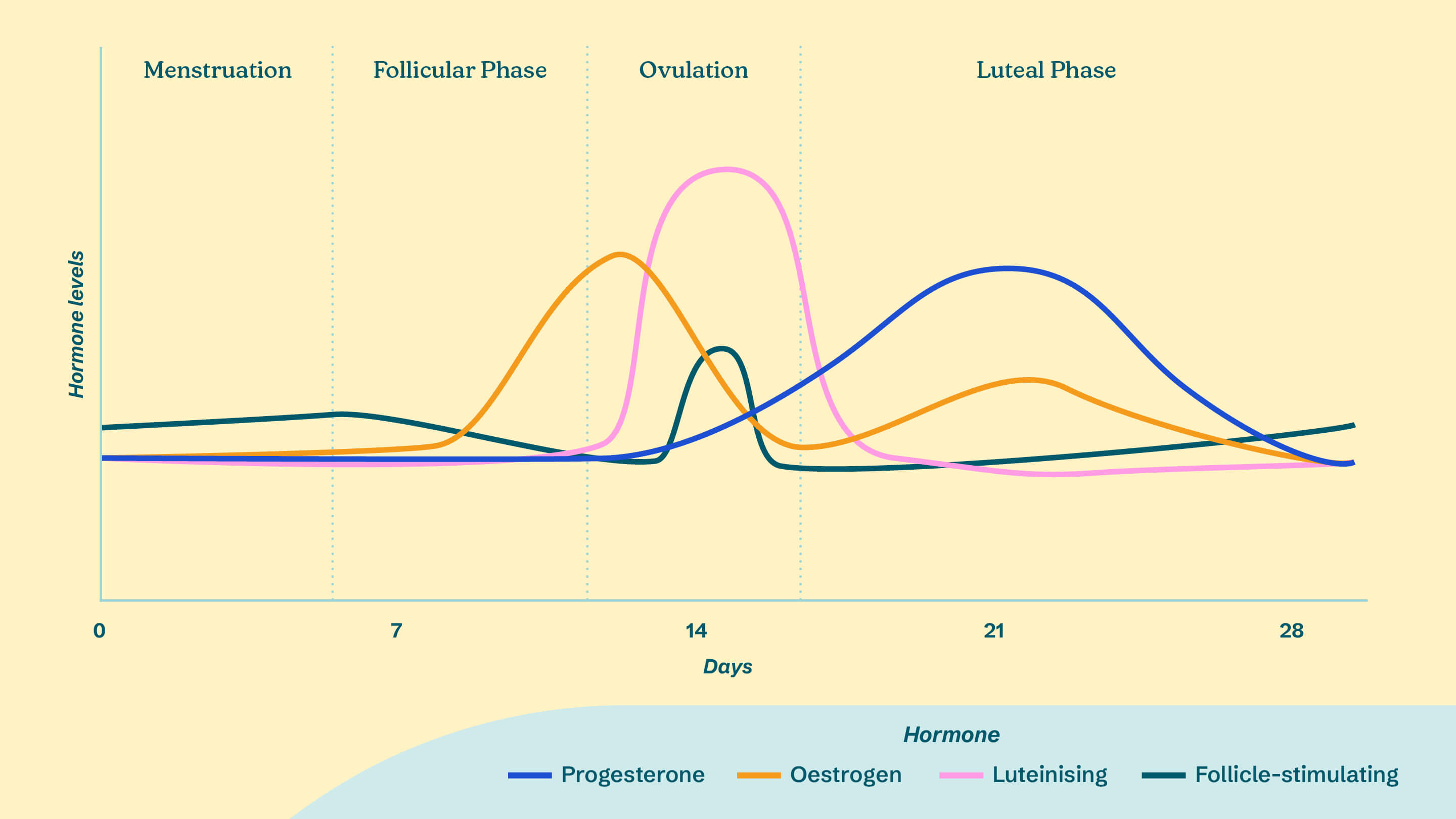What happens to hormones during the menstrual cycle
Find out the changes in hormones during the menstrual cycle

The menstrual cycle begins on the first day of your period and ends the day before your next period begins. The length of your cycle may vary but the average is to have a period every 28 days. Footnote [1]
During your cycle your hormones dip and rise, affecting your body in different ways.
What are hormones?
Hormones are chemicals that the body makes, and they act like messengers from one organ to another. Many different organs produce hormones for your body including your thyroid, pancreas and ovaries and all of them have different functions. Footnote [2]
How many hormones are involved in the menstrual cycle?
There are several hormones involved in the menstrual cycle, all with different jobs:
| Hormone | Job |
|---|---|
| Follicle stimulating hormone (FSH) | Matures the egg in the ovary and stimulates them to release oestrogen. |
| Luteinising hormone (LH) | Comes from the pituitary gland to trigger ovulation. |
| Progesterone | Maintains the uterus lining during the middle part of the menstrual cycle and during pregnancy. |
| Oestrogen | Stops FSH from being produced so that only one egg can mature during your cycle. It also repairs, thickens and maintains the uterus lining, as well as stimulating the pituitary gland to release LH. |
Effects of hormonal changes on the body
Your body changes differently depending on where you’re at during your cycle. Some people will find they have some, mixed or no symptoms at all, but let’s break down the common effects by where you might be in your cycle:
- Menstrual phase – This is your period. Some people’s may last a few days, some might be upwards of a week. Common symptoms are usually bleeding, painful cramps, bloating, mood swings and fatigue.
- Follicular phase – This is the first part of the menstrual cycle which can vary in duration depending on your individual cycle. If you have a 28-day cycle, it means that the duration of the follicular phase is around 14 days. It starts when FSH is released and stimulates the growth of ovarian follicles. During this phase, you might have increased energy levels and improved mood.
- Ovulation – This is around day 14 and occurs when oestrogen levels rise leading to a surge in LH triggering ovulation. Someone women may experience breast tenderness, and bloating.
- Luteal phase – This is during days 15-28, where progesterone levels rise, and oestrogen continues to stay high. Breast tenderness can continue during this period. Some people may experience other symptoms like skin breakouts and changes to appetite. Footnote [3]
Changes in hormones during menstrual cycle

The graph above shows the levels of your hormones throughout your cycle. As you can see, they peak and dip at different points depending on where you are in your cycle. During your period, most hormone levels are pretty low, except for FSH, which is a bit higher. As you then move into your follicular phase your oestrogen starts to rise, this is to help ready your body for a potential fertilised egg. Then during ovulation all hormones are at their peak apart from progesterone, which does begin to rise but doesn’t come to peak until the luteal phase.
Hormonal health and health insurance
Depending on your provider, you may or may not be able to get diagnostics and treatment covered for hormonal conditions. But with our health insurance you’ll get access to Aviva Digital GP, which offers you 24/7 access to GP video consultations, and repeat prescriptions. They will be able to advise and potentially refer you to an NHS specialist for any hormonal issues you might be facing. Currently hormonal conditions are not covered by our health insurance.


